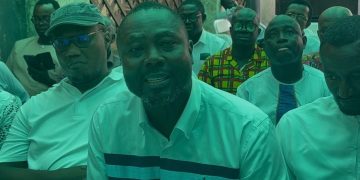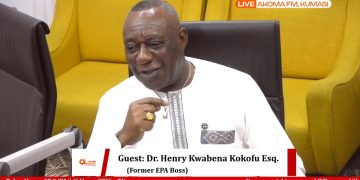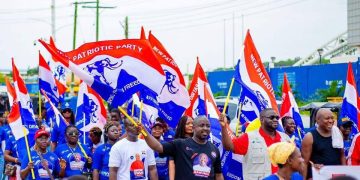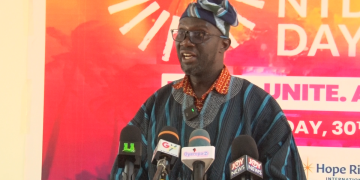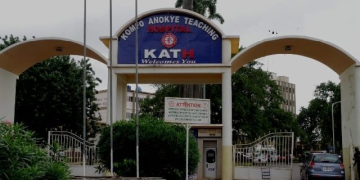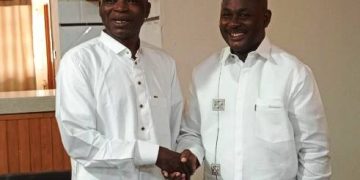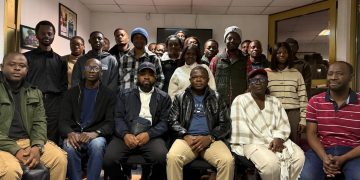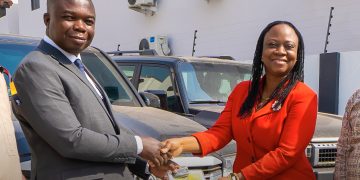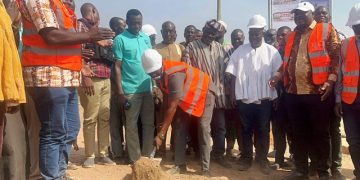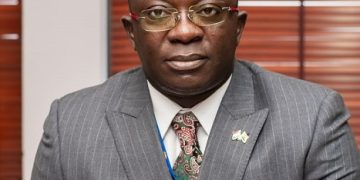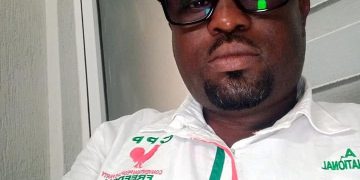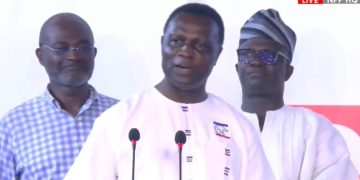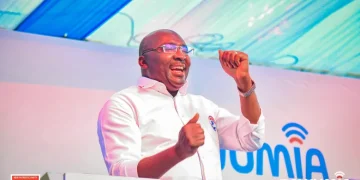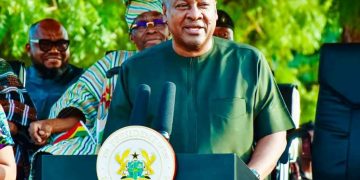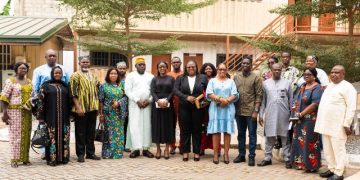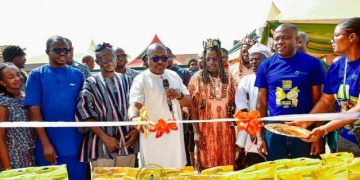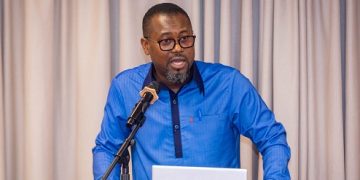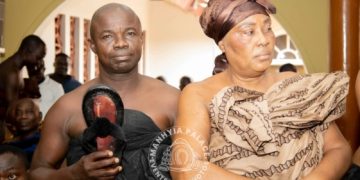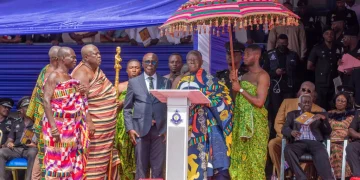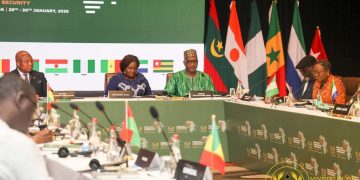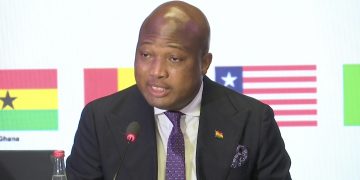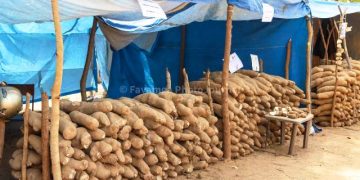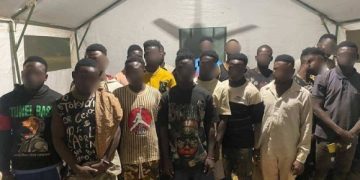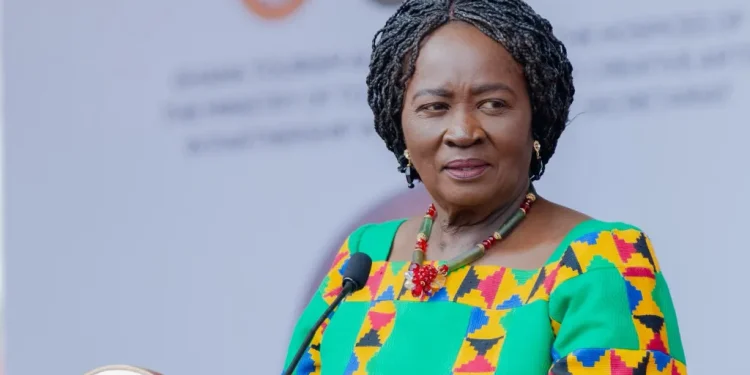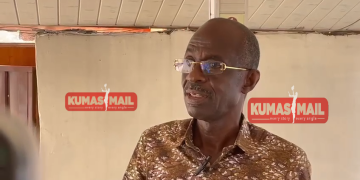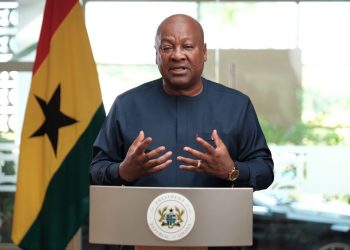Amid cultural grandeur and historical renaissance, Vice President Professor Naana Jane Opoku-Agyemang, has officially opened the 2025 Pan African Historical Theatre Festival (PANAFEST) in Cape Coast, calling on African leaders to leverage the potentials of their youth for development.
Like the current Ghanaian government, she said governments in Africa must be deliberate about investing in their youth through various youth-centred policies to enhance their potential.
“When we say that the youth is our future, we need to mean it and it must reflect in everything that we do,” she insisted.
The 2025 PANAFEST celebration, marking the 16th edition, is on the theme: “Let’s us speak of reparative justice – Pan African artistic activism.”
Indeed, the occasion, held at the historic Jubilee Park, was with colour, pomp and pageantry.





The Oguaamanhen, together with some chiefs of the Oguaa Traditional Area, and Paramount Chiefs from other Traditional Areas in the Region, earlier embarked on a procession through some principal streets of Cape Coast, led by the seven Asafo Companies to the ceremonial park.


With the national colours of red, gold and green used to beautify the park, the white theme perfectly complemented the colourful apparel of the traditional leaders, dignitaries and the hundreds of other celebrants to create a picturesque scene.
A vivid re-enactment of the slave trade which ended in freedom, rekindled the spirit of Pan Africanism and the commitment to Africa liberation and development among the people, particularly those from the Diaspora.
Nana Amba Eyiaba I, the Queen Mother of Effutu, and Krontihemaa of Oguaa Traditional Area, led a sacred ritual to welcome the African returnees back home, marking them with white clay to signify victory and joy.
Activities for the festival include musical, dance and fashion concerts, spirituality and interfaith dialogues, colloquiums, artists workshops, Pan African food fair and women’s day celebration.
The Vice President, speaking to the theme of the festival, indicated reparation had moral, political and economic ramifications. She said the quest for reparation must go beyond financial demands and focus on the total liberation and development of the African people.
“We ought to live like other people also live; nd our level of condence, see ourselves in the future and not to be afraid,” she stated.
She urged the participation of more young people in PANAFEST and related festivities to inform and empower them for the present and the future, insisting that history must be taught and learnt.
“History must teach us. It will only teach us when we do the hard work of telling our own story. “When we continue to tell our story as others have told us, we will not make the progress we are supposed to make,” she said. Prof Opoku-Agyemang advocated a more inclusive approach to Pan Africanism which would carry Africans all over the world along, not focusing on selected few places.

Osabarimba Kwesi Atta, recounting the horrors and cruelty suffered by the African ancestors, indicated that PANAFEST was not merely a festival but a spiritual journey, a homecoming and a platform for true healing, cultural expression and solidarity. He noted that repatriation, beyond the return of Africans in the Diaspora, also concerned economic, spiritual, intellectual, and culture reconnection.
“It is about creating an Africa where all Africans feel belonged and safe,” he added. To that end, the Oguaamanhen reaffirmed the commitment of the Oguaa Traditional Council to work with government, cultural institutions and the Diaspora community to make repatriation more meaningful.
That included creating safe and sustainable spaces for investment by Diaspora returnees and forming lasting economic partnerships between local communities and Diasporan investors to stimulate growth and employment.
“Development is no longer a dream; it is a shared responsibility,” he stressed.
He urged the diasporan community to see themselves as indigenes but not strangers, saying “your place in our future is not optional, it is essential.”
“Let us move from nostalgia to nation building; from return to restoration,” he added.

Madam Abla Dzifa Gomashie, the Minister for Tourism, Arts and Culture, backing the calls for reparative justice, noted that reparation demanded a reckoning of history and a restructuring of the future.
It demanded rewriting the narrative and restoring dignity to our people both at home and in the Diaspora, she said.
“We can do that through art, culture, storytelling and music, through fashion and lms, dance and drumming, through the cultural and creative industries which are tools for resilience, remembrance and reclamation,” she stated.
Madam Esi Sutherland-Addy, Chairperson, Board of Trustees, PANAFEST, lauded Prof Opoku-Agyemang for actively promoting PANAFEST from the 90s through her writings and research.

Acknowledging the significant growth in the festival over the years, she said it must evolve to become a festival owned by the people, urging greater participation. She entreated the youth to leverage the lessons and history taught by PANAFEST to inform themselves and shape their lives.
Madam Sutherland-Addy expressed gratitude to successive governments for their continuous support for the festival, saying “let us continue to make it bigger.”
Mr Ekow Panyin Okyere Eduamoah, the Central Regional Minister, urged patriotism and accountability among citizens even as they demanded reparation.
SOURCE: GNA



